Should you upgrade your iPhone now? What to know after Apple's debut of the iPhone 14.
It's decision time again for iPhone owners. With Apple's newest wave of smartphones starting to arrive Sept. 16, and pre-orders beginning Friday, you may be asking yourself: Do I need to get an iPhone 14?
The answer depends on several factors including how much you can spend, plus how – and how much – you use your iPhone, and how old is the smartphone you currently use.
Four new options await potential upgraders: the iPhone 14 ($799-up) and the higher-tech iPhone 14 Pro, both with 6.1-inch displays; the larger iPhone 14 Pro Max (starting at $999), which has a 6.7-inch display; and iPhone 14 Plus ($899), also with a 6.7-inch display, which arrives Oct. 7.
Many consumers are experiencing growing pains in regards to their smartphones because about one-fourth of them have not upgraded their device in 3½ years, said Daniel Ives, a technology analyst with investment bank Wedbush Securities.
With inflation hitting consumers in other areas, that's one reason Apple did not raise prices on its devices, he said. And why consumers can expect significant deals from cellular carriers to encourage sales. "That's going to catalyze a lot of upgrades," Ives said.
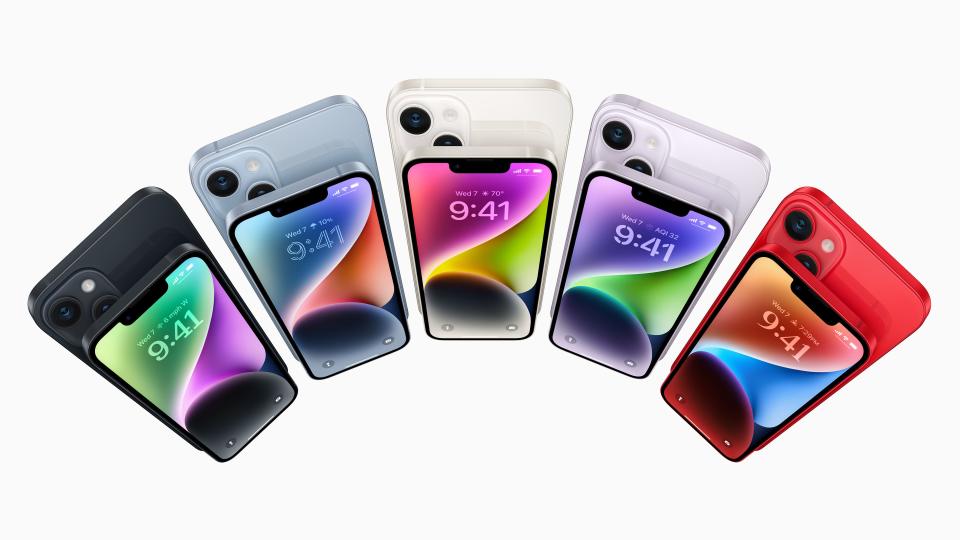
Should you buy a new iPhone?
There are many reasons to get a new smartphone – and there's some reasons to stand pat, too.
►Has your iPhone lost its mojo? If you've got an older model and it's running slow – or maybe it's a bit banged up – now might be a good time to replace your phone.
If the screen on your iPhone is cracked or your battery capacity had dropped to 80% or below, repairs are called for. A new screen can cost $200 or more for more recent models if you do not have AppleCare+. Apple charges $49-$69 (without AppleCare+) to replace a battery that holds less than 80% of its maximum capacity.
If you don't want to invest more in your current phone, that could be a sign that it's worth trading it in on a new one.
►Are you using an iPhone 7 or older? Apple's new iOS 16 operating system is also on the way, available Monday, Sept. 12. New features in iOS 16 include the ability to unsend or edit a message after it's sent, and isolating or removing an object from an image.
But only newer iPhones – iPhone 8, released in 2017, and subsequent models – will support the upgrade to iOS 16. If you have an older phone that's working fine and you are happy with how it operates, that's great. But if you're feeling as if your smartphone is really showing its age, and you want those new features, then this is a good reason to upgrade.
►Your iPhone is working fine but you could hand it down. So you have an iPhone 11 or 12 that works perfectly fine, but you want the latest and greatest. If there's a family member who would be happy to have your current phone, you could hand it down to them while you get a new one.
►Why you might want to hold off. Your phone is perhaps two years old, it's paid for and working properly. Maybe you can wait another year without putting down cash for a new phone or – if you were to pay for your new phone on credit – avoid a new monthly payment. Plus, if you primarily use your phone to talk, text and read email, a new phone isn't going to provide a transformative experience.
First look at the iPhone 14: Details to know about 'Dynamic Island,' always-on displays and more
Is the price right for Apple?: This could be Apple's smart move on prices for its new iPhone 14 models
What new features on iPhone 14 could convince me?
All of the new iPhone 14 models promise increased durability, better battery life and improved cameras to capture better low-light pictures and smoother video with a new Action Mode.
All of them will also be able to detect when you have been in a car crash and can then automatically dial 911. If you are not within reach of a cellular network, text messages will be relayed by connecting via satellite. This service is free to iPhone 14 buyers for two years after an iOS 16 update scheduled for November.
Along with the camera upgrades, the new safety features and satellite connection impressed tech reviewer Justine Ezarik, who has more than 7 million subscribers to her YouTube channel. "With crash detect you’ll feel safe knowing if something ever happened you’d have emergency response contacted immediately," she said.
And having emergency satellite connectivity means she doesn't have to lug around a satellite phone on hikes. "This is an incredible feature!" she said.
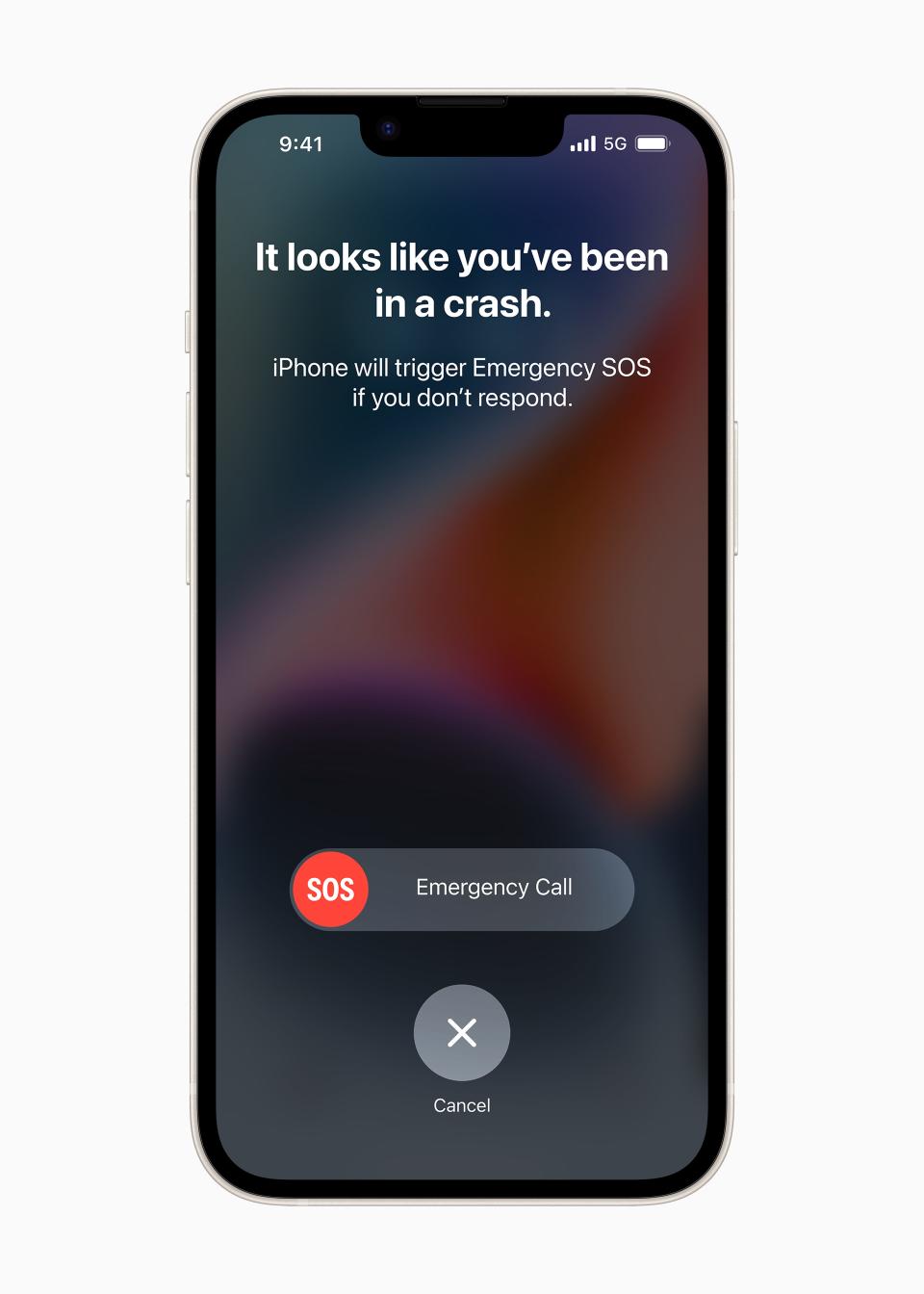
Here's what each new model offers.
iPhone 14
Price: $799-up
Why should I buy it? You want a new iPhone, but you don't need the top of the line. Compared to older models, you get an improved camera and a bit more battery life (an extra hour's worth, compared to the iPhone 13, according to Apple). A storage option of up to 512MB exceeds some older models.
Key features missing: The 6.1-inch display is the same size as that of the iPhone 13, but smaller than the new iPhone 14 Plus and iPhone 14 Pro Max (both have 6.7-inch displays). And the other new iPhone 14 models have longer battery life: Apple says the iPhone 14 Pro Max delivers up to 29 hours of video playback (25 hours when streaming), compared to 20 (and 16) for the iPhone 14. And, of course, the Apple 14 Pro models sport the new 48-megapixel main camera for improved photos and videos.
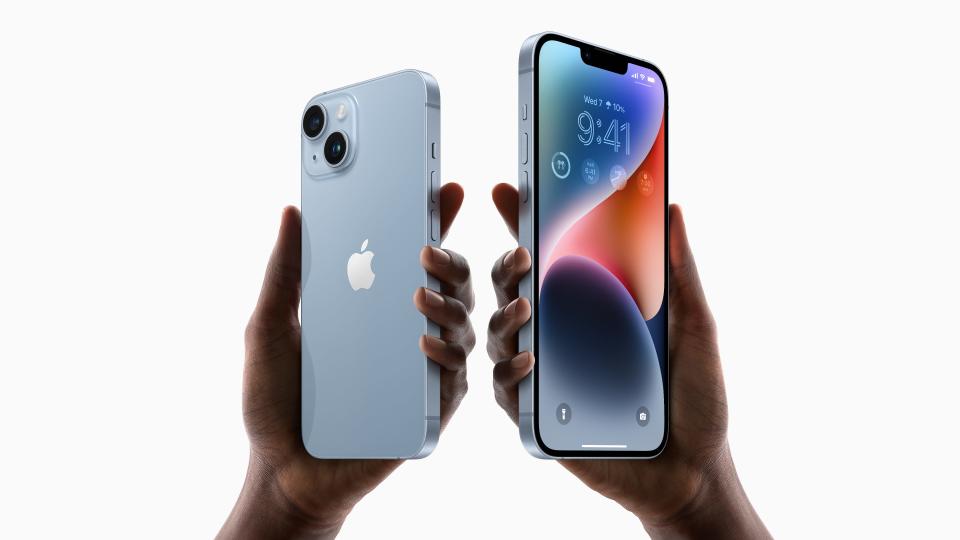
iPhone 14 Plus
Price: $899-up
Why should I buy it? The larger iPhone 14 Plus, which can be pre-ordered but doesn't become available until Oct. 7, is a good choice for those who want or have grown accustomed to a bigger display. And Apple says the Plus model gets a big bump in battery life, compared to the standard iPhone 14 – up to six more hours of video playback, or 4 hours when streaming.
Key features missing: Here, too, the iPhone 14 Plus lacks the Pro models' new high-tech 48MP camera. Like the iPhone 14, it uses Apple's A15 Bionic chip, which was used in the iPhone 13.
Still, the cameras in the iPhone 14 and iPhone 14 Plus "got a decent boost," said tech columnist Jennifer Jolly in her first impressions review for USA TODAY. " The front-facing cameras capture much higher quality and sharper-looking selfies than my iPhone 12 Pro. It also added autofocus, which is a long time coming."
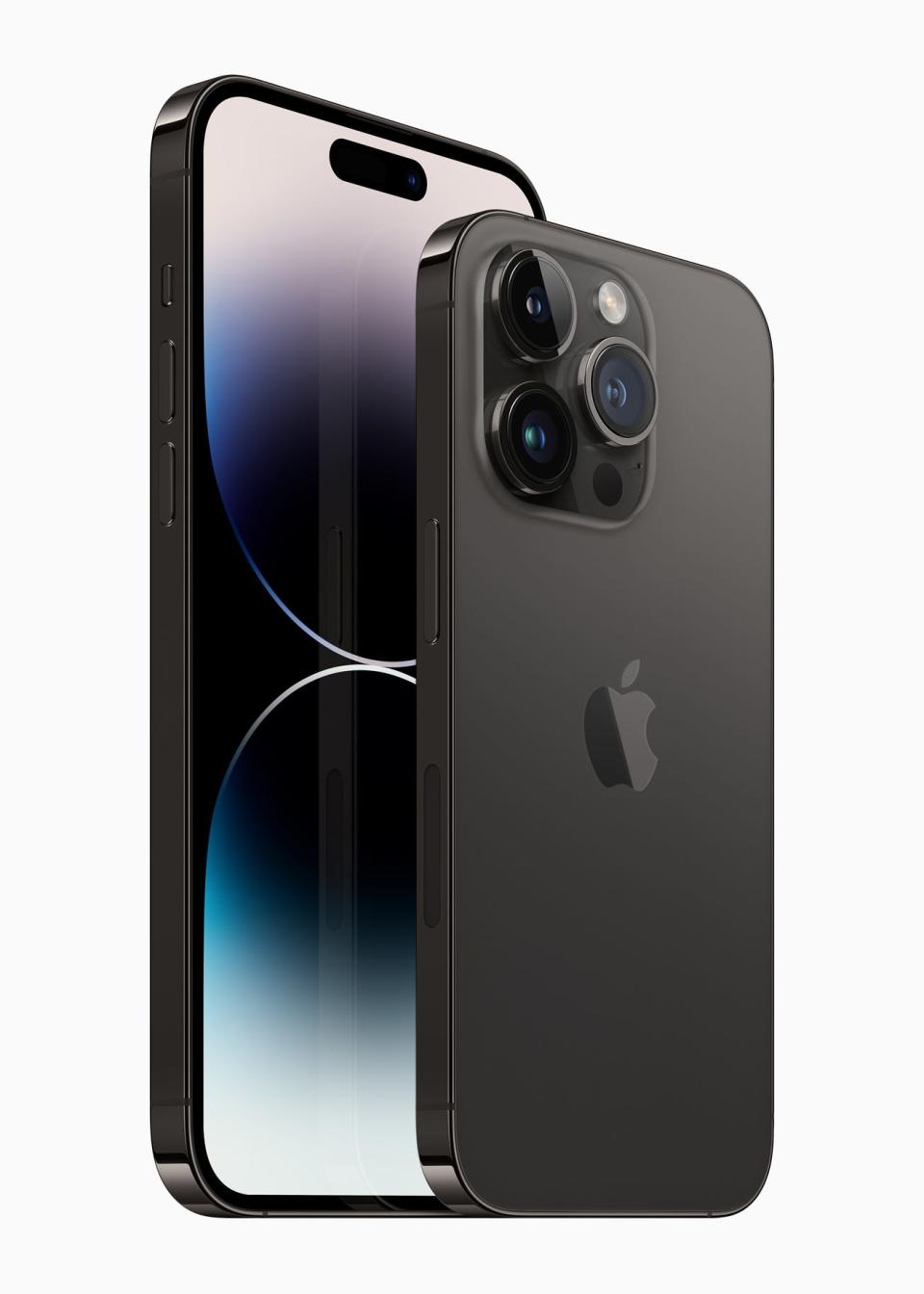
What's everyone talking about?: Sign up for our trending newsletter to get the latest news of the day
iPhone 14 Pro
Price: $999-up
Why should I buy it? Smartphone power users will benefit from the iPhone 14 Pro's new A16 Bionic chip, which helps process the video and photos taken with the phone's new 48MP main camera – and powers the smartphone's always-on display.
You also get improved battery life. Apple says the iPhone 14 Pro battery supports 23 hours of video playback (or 20 when streaming), compared to 20 (or 16 streaming) for the iPhone 14. Storage options go up to 1 terabyte.
Key features missing: Compared to the iPhone 14 Pro Max, you get a smaller display – 6.1 inches, compared to 6.7 inches – and a lower capacity battery delivering up to 6 hours fewer.
iPhone 14 Pro Max
Price: $1,099-up
Why should I buy it? Well, you want the top of the line. You get a bigger display, longer battery life, faster processor and all the bells and whistles. Plus, the price is the same as last year's Apple 13 Pro Max.
Key features missing: iPhone lovers will want for nothing when opting for this phone. The iPhone 14 Pro models have a 48 megapixel main camera. And there's an always-on display, so whenever you pick up the phone you see important information.
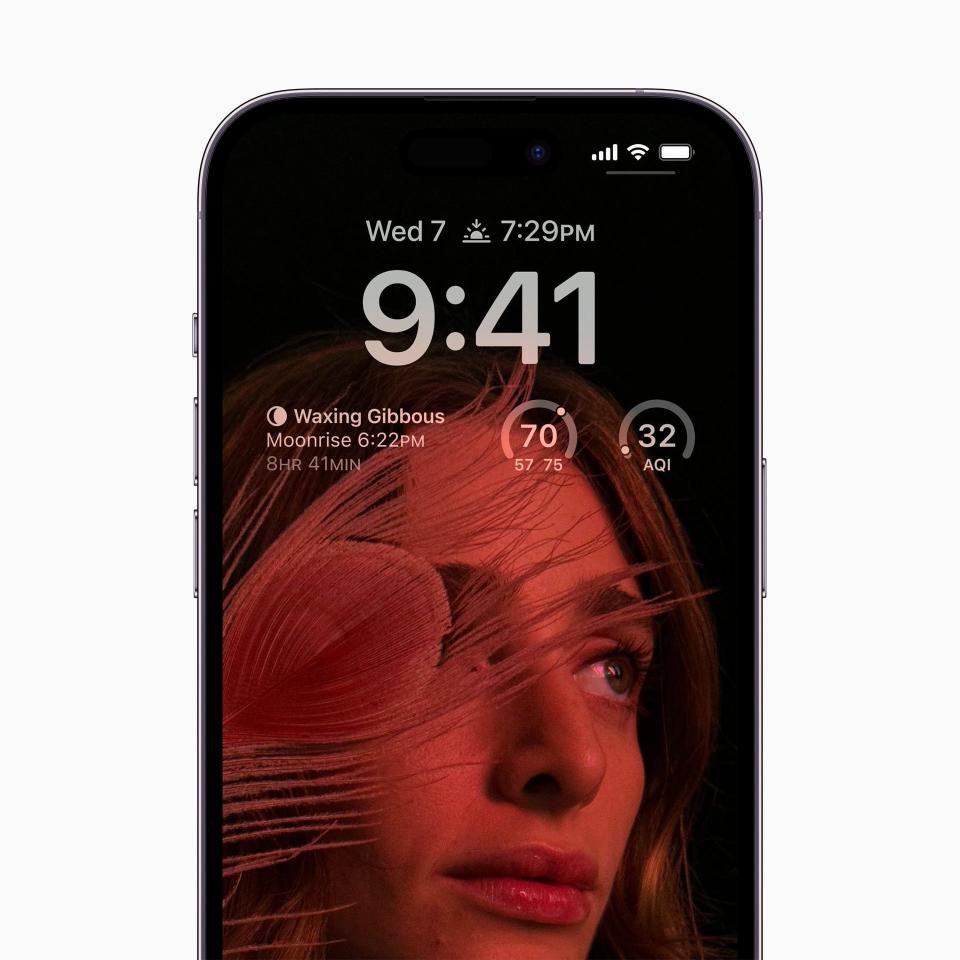
The redesigned notch on these Pro models, dubbed by Apple as the "Dynamic Island," and the always-on display "really wowed" Safwan Ahmedmia, a U.K. tech content creator with more than 1.8 million YouTube subscribers.
"We've seen Always-On Displays on other smartphones for many years and the same goes for "Cut-outs" for selfie cameras, however Apple has implemented both of these in their own unique way which makes them stand out from the crowd," he said.
Additionally, the new camera on both of the Pro models "is miles ahead of its predecessor and it's going to enable more consumers, even high-end camera enthusiasts, to potentially ditch their camera for the iPhone," Ives said.
And the inclusion of the A16 chip in the Pro models means they will hum. "It basically increases the bandwidth and the speed by up to 50%," Ives said.
Apple iPhones: Why now's a great time to grab an iPhone 12 or 13 at a discount after iPhone 14 launch
Smartphone bottom line: Is the iPhone 14 worth the price?
Does iPhones really cost $799-$1099 or more?
Not necessarily. If you trade in an older iPhone, that counts toward your purchase. For instance, say you want to get an iPhone 14 Pro and you have an iPhone 12 Pro to trade in. Apple will give you up to $430 for that trade-in. That gets the cost of the phone down to $569 (you pay the full $999 initially, but Apple will rebate the trade-in value once they receive the phone).
But the price can go up if you add features such as more storage. Say you have an iPhone 11 to trade in and you want an iPhone 14, which starts at $799. With your trade-in you get $220 off. But you want more storage, perhaps 512MB. That brings your price up to $879.
Then you add AppleCare+, which covers repairs and a replacement if your phone is stolen or lost. That adds $219 to the total for two years' coverage. Now the total of the transaction is $1,098.
Apple and cellular providers AT&T, Sprint, T-Mobile and Sprint all offer payment plans which could get that purchase down to about $36 monthly for two years or $8 monthly over three years.
Do I have to upgrade to iPhone 14?
No. Apple is still selling other models including the iPhone 13 and iPhone SE, all of which have the same A15 Bionic Chip used in the iPhone 14 models. The iPhone 13 mini starts at $599, while the iPhone 13 starts at $699. The smaller 4.7-inch iPhone SE starts at $429. The iPhone 12 currently start at $599.
If you are still using an older phone, you will benefit from a faster smartphone with a better camera, larger storage options and, most likely, better 5G connectivity than what you currently have.
However, Avi Greengart, founder and lead analyst at Techsponential, told USA TODAY tech columnist Rob Pegoraro he would argue against opting for a model older than the iPhone 13. That's because it starts with 128 GB of storage, compared to the entry-level 64 GB on the iPhone 12.
And watch for "ridiculous price cuts" on the iPhone 13, "which is a phenomenal phone, Ives said. "That's part of Apple's MO. If customers don't upgrade to a (iPhone) 14, they can upgrade to a (iPhone) 13 at a much lower price and that's still good for everyone."
Follow Mike Snider on Twitter: @mikesnider.
This article originally appeared on USA TODAY: Apple iPhone 14: Should you upgrade your smartphone? Here's what to do
